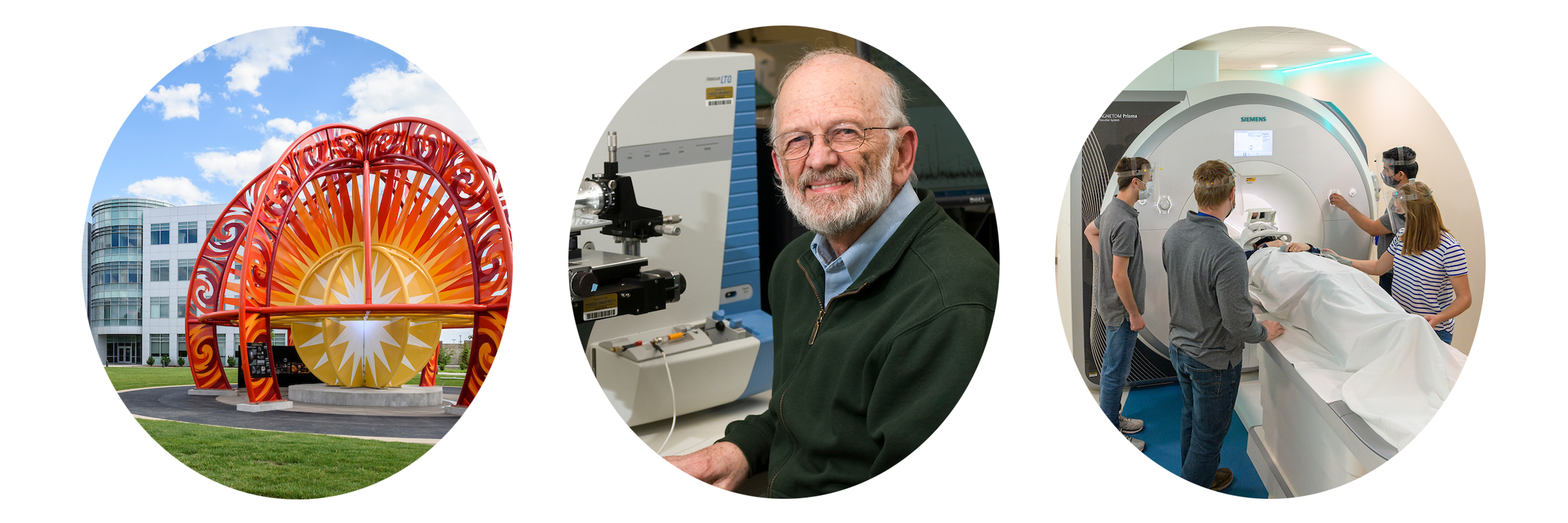PROGRAMS, SERVICES AND TOOLS
The Indiana CTSI offers a rich list of services and tools to enable clinical and translational research at Purdue University. Please visit the Indiana CTSI website for a complete collection of all research-focused guides and tools that assit with all aspects of the research process.
Clinical and Translational Resources and Pilots
Medical Technology Advance Program (MTAP)
The Medical Technology Advance Program (MTAP) is designed to increase the success rate of clinical translation and commercialization by providing integrated technical, educational, and consultative support for medical device development. Technical support from experienced engineers and veterinary experts includes device design and prototyping as well as nonclinical testing and evaluation. Investigators are also supported through available educational courses covering bioethics, ethical engineering, nonclinical and clinical study design, regulatory submissions, quality systems, entrepreneurship, and commercialization. A Master’s certificate in regulatory affairs and regulatory science for medical devices is offered through the Weldon School of Biomedical Engineering to provide advanced regulatory training of students and researchers. In addition to the integrated technical and educational resources, MTAP program experts also provide direct consultation for planning each phase along the life-cycle of translation.
Purdue Clinical Research Center (CRC)
The Indiana CTSI actively engages the community through the Community Health Partnerships (CHEP). The program networks with more than 600 stakeholders in health across Indiana and partners with the statewide community health initiatives to implement best practices for community-based health assessment and delivery. The Purdue Cooperative Extension Service provides an effective link to community health collations established in counties across the state. Translation for community dietary research and interventions is complemented by the Indiana CTSI Clinical Research Center at Purdue (Nutritional CRC at Purdue) that conducts both adult and pediatric nutritional assessment protocols and has overseen 115 protocols since 2009.
Purdue plays a significant role in the Indiana CTSI Global Health Program whose mission is to addresses domestic and global health issues for underserved populations by bringing together research and expertise from the partner institutions. The Reciprocal Innovation program is designed to help investigators develop collaborations with low- and middle-income countries in a bi-directional and iterative exchange of technology, methodology, and process that addresses common health challenges of mutual benefit to both partners. An example would be a project that uses community health strategies developed in Kenya to reduce infant mortality in Indiana.
Connect with the Purdue CRC Team
Project Development Teams (PDTs)
The overall mission of the Project Development Teams (PDTs) is to “Increase the translation of health sciences research and health care delivery to the people of Indiana and beyond by facilitating an environment that enables the conduct of clinical and translational research.”
Committees consist of multidisciplinary researchers who assist investigators in developing ideas/hypotheses into well-designed translational research projects. The teams serve as “one stop shops” by providing investigators access to protocol development; pilot funding; biostatistics; IRB/regulatory and nursing support; facilitation of collaboration with other investigators and access to Core Resources across Indiana, all in one meeting.
Connect with the Project Development Teams
Postdoc Challenge
The Postdoc Challenge offers postdoctoral researchers at Indiana CTSI partner institutions valuable proposal writing and reviewing experience in areas related to translational research through the use of one or more of the CTSI-designated core facilities.
Connect with Postdoc Challenge Team

